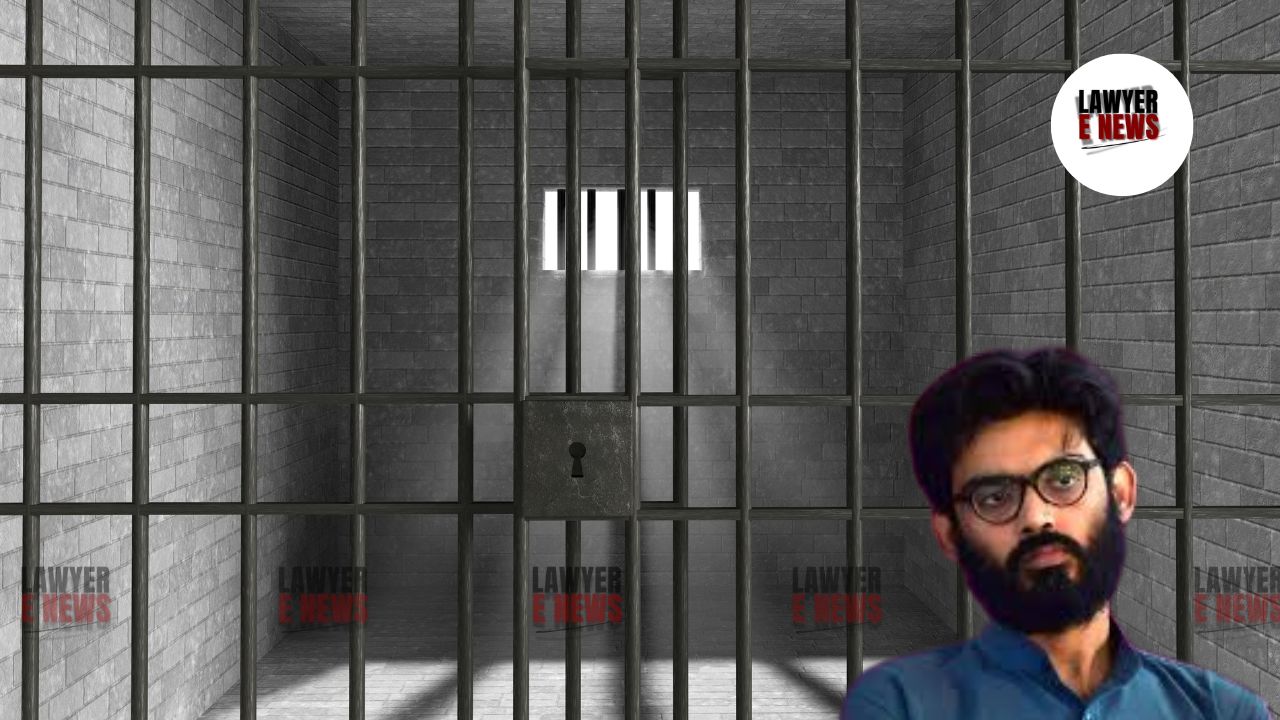-
by Admin
15 February 2026 5:35 AM



Today on October 25, 2024, the Supreme Court of India urged the Delhi High Court to consider expediting the hearing of the bail application filed by student activist Sharjeel Imam, who has been held in pre-trial detention under the Unlawful Activities (Prevention) Act (UAPA) for his alleged role in the 2020 Delhi riots “larger conspiracy” case. A bench comprising Justices Bela M. Trivedi and Satish Chandra Sharma, while hearing Imam's petition seeking a direction for early disposal of his bail plea, observed that “the petitioner shall be at liberty to request the High Court to hear the bail application as expeditiously as possible on the next date, and it is expected that the High Court shall consider the said request.” The Supreme Court noted that the matter is scheduled before the High Court on November 25.
The case against Sharjeel Imam arises out of the communal riots that erupted in North-East Delhi in February 2020, following protests against the Citizenship (Amendment) Act, 2019. The violence resulted in 53 fatalities and over 700 injuries. Imam, along with several others, stands accused of orchestrating a “larger conspiracy” behind the riots and has been charged under several sections of the UAPA, Indian Penal Code (IPC), the Arms Act, and the Prevention of Damage to Public Property Act, 1984.
Imam was taken into custody on January 28, 2020, and has since remained incarcerated. His bail application was initially rejected by the trial court, prompting him to seek relief from the Delhi High Court in April 2022. However, despite over two years having passed since its filing, his bail plea remains undecided due to repeated adjournments, judicial recusals, and changes in the composition of the bench.
The core issue before the Supreme Court was whether it could direct the Delhi High Court to expedite the hearing of Imam’s bail plea, given the prolonged delay. Senior Advocate Siddharth Dave, representing Imam, argued that the protracted pendency of his client’s bail plea constituted a serious violation of Imam’s right to a timely hearing. Citing Section 21(2) of the National Investigation Agency (NIA) Act, which mandates the High Court to dispose of appeals within three months, Dave contended that Imam’s case had been adjourned on 64 occasions, and no effective hearing had taken place.
Dave emphasized that he was not seeking bail from the Supreme Court directly but only requesting a directive to the High Court to take up the matter at the earliest opportunity. He submitted, “I am not saying anything against anyone. I am not blaming anyone. Allow it or reject it, but please decide it.”
Justice Trivedi pointedly remarked that the petitioner was facing charges under multiple FIRs, to which Dave clarified that the present bail plea concerned only one specific FIR under the UAPA, related to the alleged "larger conspiracy" behind the riots.
In its order, the Supreme Court refrained from issuing a binding directive but permitted Imam to approach the High Court on the next date to request an early hearing. The Court expressed its “expectation” that the High Court would consider Imam’s request sympathetically, recognizing the unusual delay in adjudicating his bail plea.
The order of the Court noted, “The petitioner shall be at liberty to request the High Court to hear the bail application as expeditiously as possible on the next date, and it is expected that the High Court shall consider the said request.”
Imam’s bail application was first listed before a bench led by Justice Siddharth Mridul on April 29, 2022. Due to frequent roster changes and the reconstitution of benches, the matter was transferred multiple times—to a division bench led by Justice Mukta Gupta, back to Justice Mridul, and later to Justice Suresh Kumar Kait. With Justice Kait’s recent elevation as Chief Justice of the Madhya Pradesh High Court, the bail matter was once again reassigned, this time to a division bench comprising Justices Navin Chawla and Shalinder Kaur. On October 7, 2024, the scheduled hearing could not take place as the bench did not assemble, leading to an adjournment until November 25.
In September 2023, Imam had moved an application before the High Court seeking an early hearing of his bail plea, but this request was declined as the matter was already scheduled for October 7. Following further delays, Imam approached the Supreme Court, seeking its intervention to secure a timely decision on his bail plea.
It is noteworthy that Imam was recently granted statutory bail in a separate case concerning sedition charges related to his allegedly inflammatory speeches against the Citizenship Amendment Act (CAA) at Aligarh Muslim University and Jamia Millia Islamia. This bail, however, pertained only to the sedition case and did not affect the UAPA charges in the Delhi riots “larger conspiracy” case.
The Supreme Court’s observations in this matter underscore the judiciary’s recognition of the importance of timely bail hearings, especially in cases involving extended pre-trial detention under draconian laws like the UAPA. Imam’s plea for expeditious hearing raises significant concerns about the right to fair and timely access to justice, a cornerstone of the rule of law.
The Supreme Court’s intervention, though limited, highlights the need for due diligence and procedural fairness in high-stakes cases involving serious charges. The outcome of the Delhi High Court’s November 25 hearing could have wider implications for the adjudication of bail pleas under UAPA and similar legislations, where delays can lead to prolonged detentions without trial.
Date of Decision: October 25, 2024
Sharjeel Imam v. State (NCT of Delhi), W.P.(Crl.) No. 422/2024
